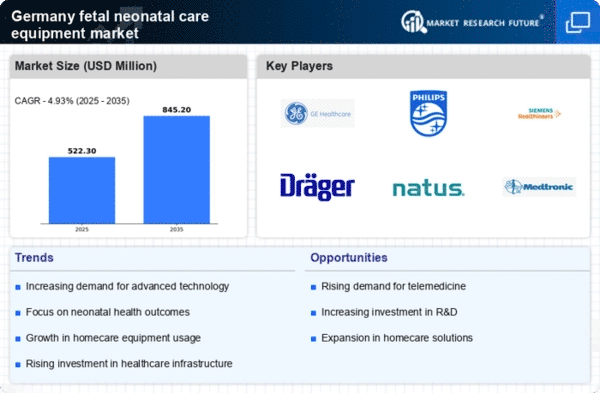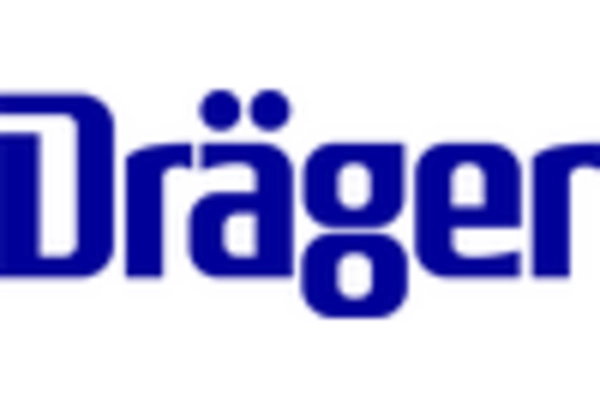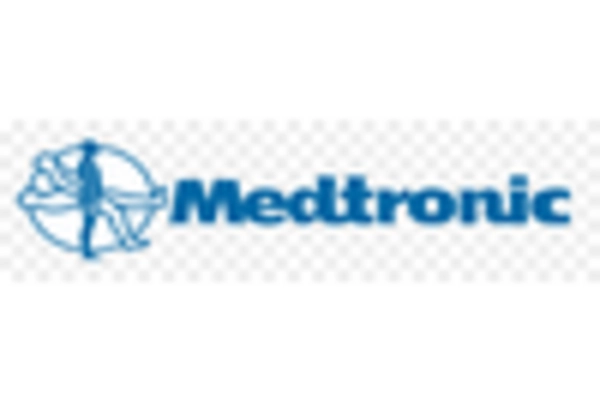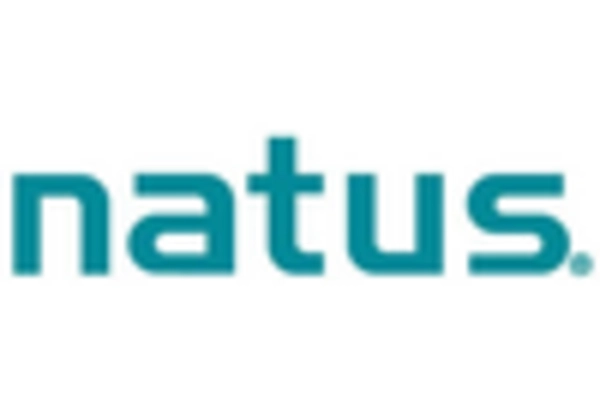Rising Birth Rates
The increasing birth rates in Germany contribute significantly to the growth of the fetal neonatal-care-equipment market. Recent statistics indicate that the birth rate has seen a modest rise, with approximately 1.5 million births recorded annually. This trend necessitates enhanced neonatal care solutions, as healthcare facilities strive to accommodate the growing number of newborns. Hospitals and clinics are investing in advanced fetal monitoring systems and incubators to ensure optimal care for infants. The demand for high-quality neonatal equipment is likely to escalate, driven by the need for improved health outcomes for newborns. As a result, manufacturers are focusing on developing innovative products tailored to meet the specific needs of healthcare providers, thereby propelling the market forward.
Increased Healthcare Expenditure
Germany's commitment to healthcare spending plays a pivotal role in the fetal neonatal-care-equipment market. The government allocates a substantial portion of its budget to healthcare, with expenditures reaching approximately €400 billion annually. This financial support enables hospitals to upgrade their neonatal care facilities and invest in state-of-the-art equipment. The emphasis on improving maternal and child health outcomes has led to a surge in demand for advanced fetal monitoring devices and neonatal incubators. Furthermore, the rising awareness of the importance of early intervention in neonatal care is likely to drive further investments in this sector. As healthcare providers seek to enhance their service offerings, the fetal neonatal-care-equipment market is poised for sustained growth.
Regulatory Support for Innovation
The regulatory environment in Germany is increasingly supportive of innovation in the fetal neonatal-care-equipment market. Regulatory bodies are actively promoting the development and approval of new medical technologies, which encourages manufacturers to invest in research and development. This supportive framework facilitates the introduction of cutting-edge neonatal equipment that meets stringent safety and efficacy standards. As a result, healthcare providers are more inclined to adopt innovative solutions that enhance neonatal care. The collaboration between regulatory agencies and industry stakeholders is likely to foster a culture of innovation, ultimately benefiting the fetal neonatal-care-equipment market. This trend suggests a promising future for the development of advanced technologies aimed at improving neonatal health outcomes.
Growing Awareness of Neonatal Health
There is a growing awareness of neonatal health issues among the German population, which is influencing the fetal neonatal-care-equipment market. Parents and healthcare professionals are increasingly recognizing the importance of specialized care for newborns, particularly those born prematurely or with health complications. This heightened awareness is prompting healthcare facilities to invest in advanced neonatal equipment to ensure the best possible outcomes for infants. Educational campaigns and community outreach programs are further emphasizing the significance of neonatal care, leading to increased demand for high-quality equipment. As awareness continues to rise, the fetal neonatal-care-equipment market is expected to expand, driven by the need for improved healthcare solutions for newborns.
Technological Integration in Healthcare
The integration of advanced technologies in healthcare is transforming the fetal neonatal-care-equipment market. Innovations such as telemedicine, artificial intelligence, and data analytics are being increasingly adopted in neonatal care settings. These technologies facilitate real-time monitoring of fetal and neonatal health, allowing for timely interventions. Hospitals in Germany are leveraging these advancements to enhance patient outcomes and streamline operations. For instance, AI-driven predictive analytics can identify potential complications, enabling healthcare providers to act swiftly. This trend not only improves the quality of care but also drives the demand for sophisticated neonatal equipment. As technology continues to evolve, the fetal neonatal-care-equipment market is likely to witness significant advancements, catering to the needs of modern healthcare.
















